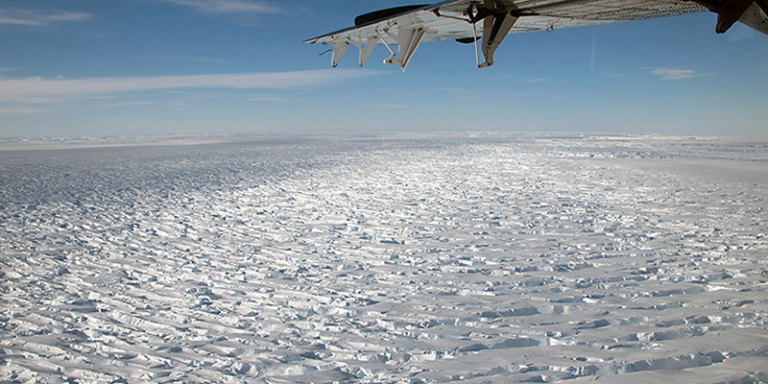ICCS member to take part in largest ever Antarctic field campaign
1 August 2018
Professor Paul Brennan, will this autumn be taking part in the biggest Antarctic field campaign of its kind, examining the Thwaites Glacier

Author Rob Thompson, Impact Fellow
 radar | environmental modelling | Antarctic
radar | environmental modelling | Antarctic
Paul Brennan, professor of microwave electronics in the Dept. of Electronic and Electrical Engineering and member of ICCS will, from this Autumn, take part in 5-year effort to examine the stability of the Thwaites Glacier in Antarctica.
The joint UK-US research programme will be one of the most detailed and extensive examinations of a massive Antarctic glacier ever undertaken.
Global sea levels could be significantly affected by the collapse of the Thwaites Glacier in West Antarctica. It already drains an area roughly the size of Britain, accounting for around 4% of global sea-level rise - an amount that has doubled since the mid-1990s.
Scientists will travel to Antarctica in order to gather data on the stability of the glacier, this will inform whether collapse could begin in the next few decades or centuries.
Professor Brennan's contribution will utilise his expertise in radar techniques to look deep below the surface of the ice, enabling a clear picture of interactions between different layers of ice and the bedrock.
A research member of the UCL radar group will head south during the Antarctic summer (our winter) to install and operate the radar equipment along with gathering and processing the resultant data.
The group led by Professor Brennan brings expertise of using radar in this way, with previous work enabling the understanding of other natural phenomena such as snow avalanches in the Alps and volcanic eruptions in Antarctica and Hawaii.
Along with equipment from the UCL group, the programme will deploy the most up-to-date instruments and techniques available, from drills that can make access holes 1,500m into the ice with jets of hot water to autonomous submarines like the Autosub Long Range affectionately known around the world as Boaty McBoatface.
Talking about the importance of the programme UK Science Minister Sam Gyimah said:
“Rising sea levels are a globally important issue which cannot be tackled by one country alone. The Thwaites Glacier already contributes to rising sea levels and understanding its likely collapse in the coming century is vitally important. Science, research and innovation is at the heart of our industrial strategy and this UK-US research programme will be the biggest field campaign of its type ever mounted by these countries. I'm delighted that our world-leading scientists will help leading this work.
The data gathered by ITGC will be archived and freely shared at the end of the programme to help future understanding of the area.
 Close
Close

